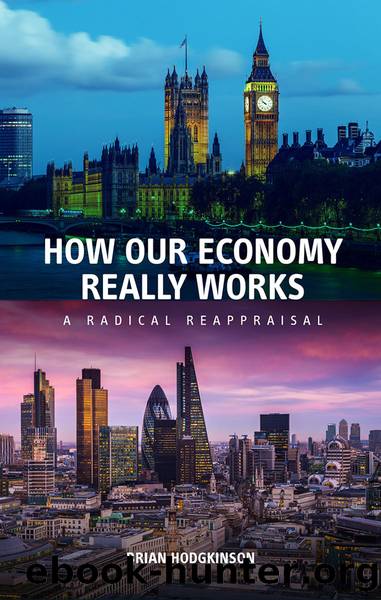How our economy really works by Brian Hodgkinson

Author:Brian Hodgkinson [Hodgkinson, Brian]
Language: eng
Format: epub
Publisher: Shepheard Walwyn Publishers
Published: 2019-05-15T00:00:00+00:00
10
Transport
NO ASPECT of the economy more obviously involves location than transport, since it is concerned entirely with the movement of people, goods and capital from one location to another. The effect of transport systems upon the location of population and industry is profound, yet in many respects the effect is disregarded. Probably the first question asked by the founder of a business is where to locate it; and the answer is largely influenced by the transport facilities available for workers, supplies, final goods and consumers. Present-day firms are more likely to locate where there is quick and ready access for skilled labour and consumer markets, rather than for the supply of raw materials which are no longer so much bulky loads, like coal and iron ore. Moreover, as transport technology develops the choice of location varies accordingly.
Other technological developments, especially in communications, affect the location chosen. Computers, mobile phones and other technology make it possible for workers and firms to locate far from what would have been regarded as their obvious place of work. Yet this does not seem to have changed radically the concentration of firms and working populations in towns and cities. Physical proximity remains a major factor in location for a range of reasons: personal relationships, including the trust arising in direct human contact; external economies of all kinds, i.e. economies that arise not just within a firm but owing to the presence of others; availability of public utilities like power, water and law and order. Urban transport systems also play a key part in maintaining the attraction of concentrated economic activity.
A central question regarding the economics of transport is how it is financed. Few transport systems, if any, can be fully financed out of fares and freight charges. If these alone are the revenue, there has to be a subsidy from national or local government. This strongly suggests that there is a serious oversight in the economic thinking involved.
The oversight can be stated in one sentence. Transport systems benefit, not just the users, but also localities. A road benefits all who live or work near it. So, too, do railways, waterways, ports and airports. Contrarily, those who are located far from transport facilities are handicapped, unless they seek a quiet, and probably leisurely, life. The network of transport links on a map is a clear indication of the locations of more or less intensive areas of economic activity.
Under the present system of land tenure, those individuals or firms who own land with good transport facilities benefit without any corresponding payment for the services, except where local authorities subsidise these out of the council tax. Such landowners are free riders. They gain twice over; once as users of the services (for which they pay, like all other users) and secondly in the higher rents or sale prices that they can obtain for their land, for which they pay nothing. No surprise that transport cannot be adequately financed by user charges alone!
Public collection of the rent of land would meet the demands of finance and of natural justice.
Download
This site does not store any files on its server. We only index and link to content provided by other sites. Please contact the content providers to delete copyright contents if any and email us, we'll remove relevant links or contents immediately.
International Integration of the Brazilian Economy by Elias C. Grivoyannis(107906)
The Radium Girls by Kate Moore(12012)
Turbulence by E. J. Noyes(8036)
Nudge - Improving Decisions about Health, Wealth, and Happiness by Thaler Sunstein(7689)
The Black Swan by Nassim Nicholas Taleb(7097)
Rich Dad Poor Dad by Robert T. Kiyosaki(6596)
Pioneering Portfolio Management by David F. Swensen(6280)
Man-made Catastrophes and Risk Information Concealment by Dmitry Chernov & Didier Sornette(6001)
Zero to One by Peter Thiel(5782)
Secrecy World by Jake Bernstein(4736)
Millionaire: The Philanderer, Gambler, and Duelist Who Invented Modern Finance by Janet Gleeson(4457)
The Age of Surveillance Capitalism by Shoshana Zuboff(4272)
Skin in the Game by Nassim Nicholas Taleb(4232)
The Money Culture by Michael Lewis(4186)
Bullshit Jobs by David Graeber(4177)
Skin in the Game: Hidden Asymmetries in Daily Life by Nassim Nicholas Taleb(3986)
The Dhandho Investor by Mohnish Pabrai(3750)
The Wisdom of Finance by Mihir Desai(3726)
Blockchain Basics by Daniel Drescher(3571)
